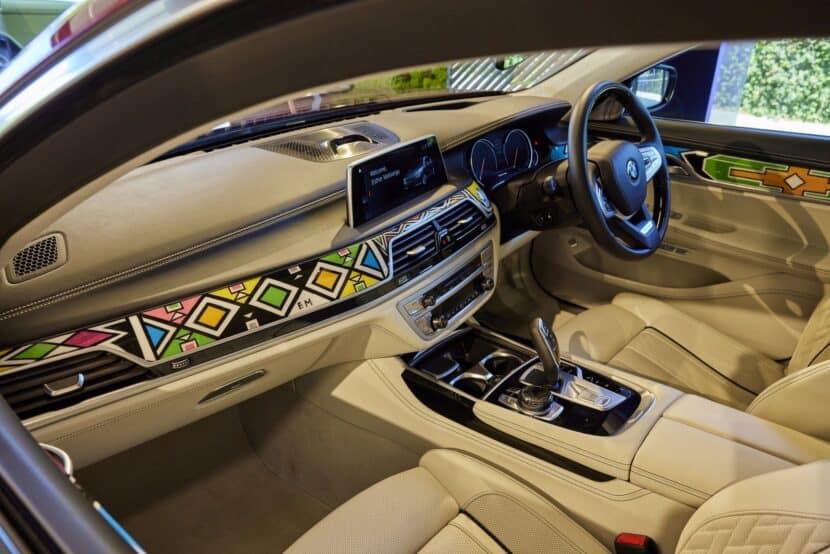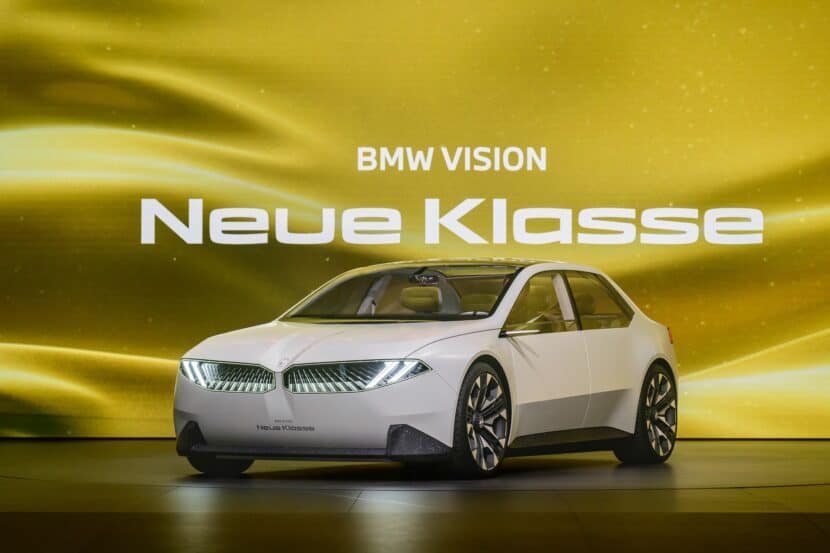In an era where businesses worldwide are increasingly embracing sustainability as a core value, BMW is also taking proactive steps in this direction. Celebrating a half-century of operations in South Africa, BMW has cultivated strong ties within the country, and as a showcase of their local endeavors, they have extended an invitation to media representatives for a special event.
Over the course of the three days, BMW dwelled into a broad spectrum of topics, from fostering youth employment and skills development, to circular industries and innovations in electrification, and partnerships with NGOs like UNICEF to fund training and education in STEM subjects.
To learn more about the company’s initiatives in South Africa and other global initiatives, we sat down with Ilka Horstmeier, Member of the Board of Management of BMW AG, responsible for People and Real Estate, and Labor Relations.
BMW’s Sustainability Goals
In an opening statement, Mrs. Horstmeier defined BMW’s multi-pronged approach to sustainability based on several pillars: economic, social, and environmental. “We at BMW Group aim to reduce the CO2 footprint of entire value chain by 40% by 2030,” says Mrs. Horstmeier. “We’re doing that by looking at the supply chain, production and of course, vehicles.”
Furthermore, the BMW Board Member emphasizes the education and training aspect as a crucial step for their employees to adapt to electrification and digitalization. In South Africa, BMW has set targets to reach a specific number of children with educational programs and partnered with UNICEF to achieve this.
Investing in Next-Gen Leaders and Workforce
Of course, the company also wants to foster the next generation leaders. Therefore, according to Mrs. Horstmeier, BMW invests in leadership development, focusing on building responsible leaders worldwide and participating in programs like One Young World to inspire and motivate young leaders.
“We have been actively involved in the field of education for many years,” Mrs. Horstmeier says. “Back in 2020, we set a target to provide educational programs to one million children across our locations, and I’m proud to announce that we successfully achieved that goal last year. As a result, we’ve now set our sights on a new target, and that’s why we are seeking new partners. We’re thrilled to have partnered with UNICEF, and our commitment extends until 2030.”
So what’s the next goal? According to the board member, BMW now aspires to reach ten million children annually through their educational programs. In South Africa, they are dedicated to investing half a million per year euros, and this initiative will not be limited to the existing investments at the Ntsha-Peu Primary school and the Lethabong Secondary school. BMW plans to extend their support to 18 additional schools across all nine provinces in South Africa.
“Moreover, we have plans to expand our efforts to other countries where BMW operates,” says Mrs. Horstmeier. “These countries include Brazil, Mexico, China, India, and Thailand.”
Diversity Programs
When it comes to Diversity and Equity, BMW partners with the United Nations Alliance of Civilizations to promote diversity, tolerance, and democracy. They work with grassroots organizations and provide training to enhance their capabilities. Naturally, Arts, Culture, and Sports have always played an important role at BMW. Therefore, the company supports artists and cultural projects and engages in sports initiatives to unite people and provide funding to organizations. We had the chance to see first-hand the beautiful BMW 7 Series Individual car by South African artist Esther Mahlangu.
Circular Economy
On a local and global scale, BMW aims to ramp up their sustainability efforts. Circular economy has been a hot topic in Munich in the last few years. According to Mrs. Horstmeier, these topics are of a major importance for the company: the use of secondary materials in their products, reducing CO2 emissions, enhancing supply chain resilience, and decoupling growth from resource consumption.
Mrs. Horstmeier points us to the BMW i Vision Circular project which demonstrates what’s achievable, even though full circularity in their operations isn’t currently feasible. This vision encompasses a comprehensive approach to sustainability, involving the supply chain, production processes, and the user experience of their cars. Additionally, BMW needs to recover and recycle materials, particularly in the case of batteries, which may not be viable until at least the mid-2030s.
Corporate Social Investments
When asked how BMW allocates budgets for their CSR initiatives, Mrs. Horstmeier points out that everything is done at a project level and it is decoupled from profit allocations. “The budget is not tied to profits but is based on the company’s commitment to social and environmental responsibility. The focus is on the impact and long-term commitment rather than the amount of money spent,” Mrs. Horstmeier told us.
But it’s not all about monetary investments. BMW Group also mobilizes their employees, open up their networks, and allocate other resources to support projects around the world. Mrs. Horstmeier points out that employee engagement is a key part of this approach. At the Ntsha-Peu Primary school, a team of two BMW employees put together the installation process of solar panels and storing the energy in a set of battery packs from pre-owned BMW plug-in hybrids. More on that in a separate article.
Lastly, the BMW board member points out that the focus is on impact. She emphasizes that it’s not just about how much money BMW spends on sustainability initiatives but how they spend it and the impact they can make. Their approach is more focused on creating a sustainable and meaningful difference rather than meeting a specific financial target.
Challenges in South Africa
Mrs. Horstmeier acknowledges the unique challenges faced in South Africa, notably in the field of education and unemployment. She stresses that unemployment is a significant issue in South Africa, and addressing it is crucial. BMW believes that by investing in education, they can create a skilled workforce to help mitigate unemployment. And that starts with education from primary to secondary schools to universities.
Neue Klasse and What It Means for BMW
In 2025, BMW will enter a new era. The Neue Klasse architecture is more than just cars, it’s a complete revamp of the company, from products to people to production and supply chain. We asked Mrs. Horstmeier what Neue Klasse means for the people, especially to those who grew up with the Ultimate Driving Machine slogan.
“We will remain the company who delivers the Ultimate Driving Machine,” she says. “That’s so important for us. Furthermore, the future of mobility is filled with joy and driving pleasure. It’s a digital transformation that encompasses everything, and this vision is shared by people from all walks of life. They have faith in the concept of mobility. Moreover, many young individuals, including university students, are drawn to BMW because they’re passionate about addressing the challenges of making mobility more digital, electric, and sustainable. This is seen as the future of mobility, one that preserves the freedom to move. The entire company is fully committed to this vision, and we continuously work towards achieving it.”
Furthermore, Mrs. Horstmeier says that Neue Klasse is not just about changing the vehicle architecture; it’s about transforming the entire company. “We are actually undergoing a transformation process for each and every plant in our company,” she says. “And that gives people the trust that we are counting on them that we need them that we upskill and rescale them for this new task.”
She gives the example of the engine plant in Munich. According to Mrs. Horstmeier, in 2020, BMW made a difficult decision to modernize and relocate an engine plant, which was emotional for the dedicated workforce that had built high-quality engines. Despite the challenges, the company ensured that all 1,200 employees found new job opportunities within BMW.
Betting on Hydrogen Also
But it’s not all about EVs. The board member mentions the company’s investment in hydrogen as an alternative to battery electric vehicles. Mrs. Horstmeier, along with the other board members, see hydrogen as a potential solution for situations where the prerequisites for battery electric vehicles are not met, such as limited natural resources or charging infrastructure.
Addressing Concerns of Greenwashing
It’s no secret that the automotive industry thrives these days on selling many large and inefficient SUVs . When asked if their recent environmental initiatives might be seen as greenwashing, Mrs. Horstmeier sayid” Absolutely not!” “I think we tried to showcase today that this is not our way of doing things,” she added in reference to the schools we visited earlier in the day. “I think whatever we do is a consistent approach. And therefore, I think it’s it’s it’s very, very clear that we are on that path because we truly believe that this is part of our business as well as going the ecological path. And therefore the answer is no.”










